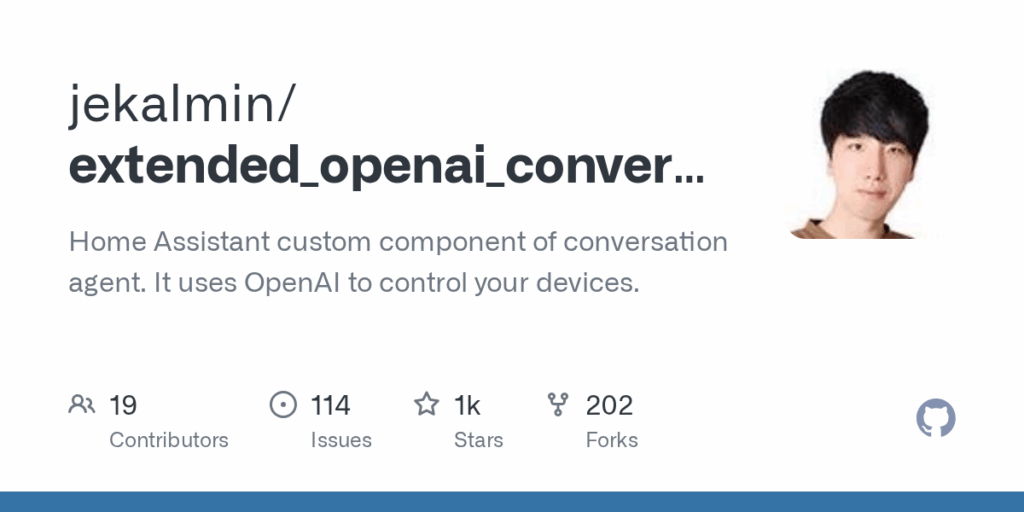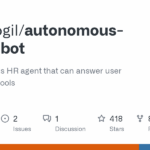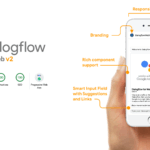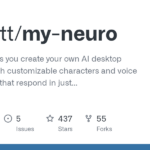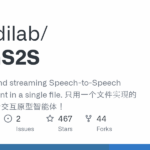extended_openai_conversation
Basic Information
Extended OpenAI Conversation is a custom Home Assistant component that extends the built in OpenAI Conversation integration so OpenAI models can perform real Home Assistant actions. It maps OpenAI function calling to Home Assistant service calls and enables the model to execute services, create automations, retrieve entity state history, fetch data from REST APIs or web pages, and optionally receive the active user name as part of the message context. The integration is installed as a custom component via HACS or by copying a folder into custom_components, configured from Settings Devices and Services, and selected as the conversation agent under Voice Assistants. It requires an OpenAI API key and supports specifying a base URL for compatible servers. Users must expose entities in Home Assistant so the model knows available devices.

